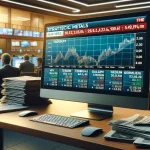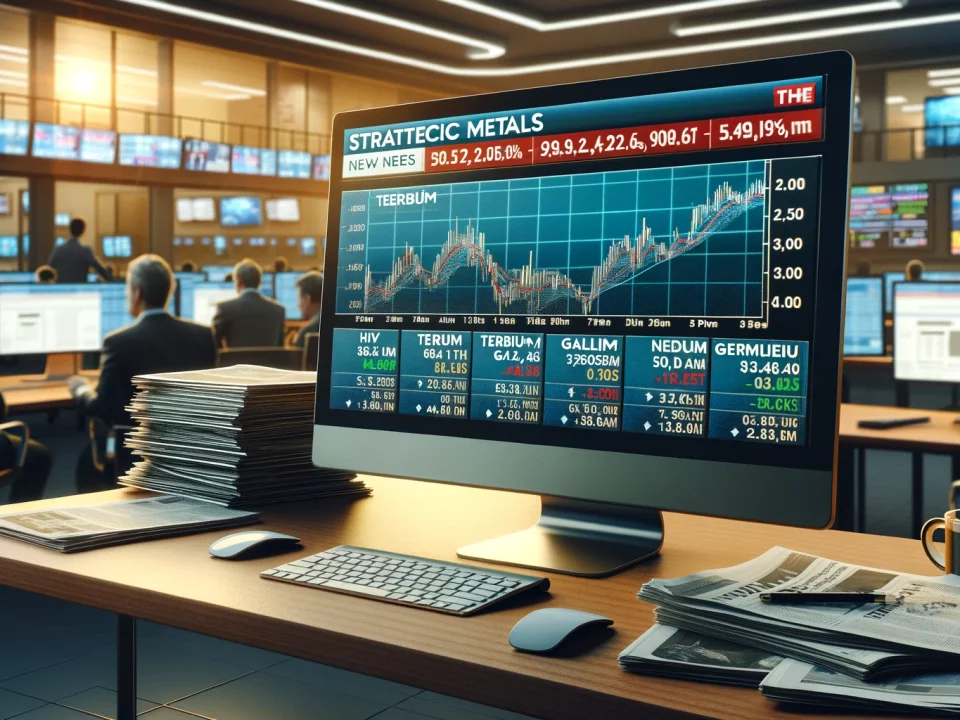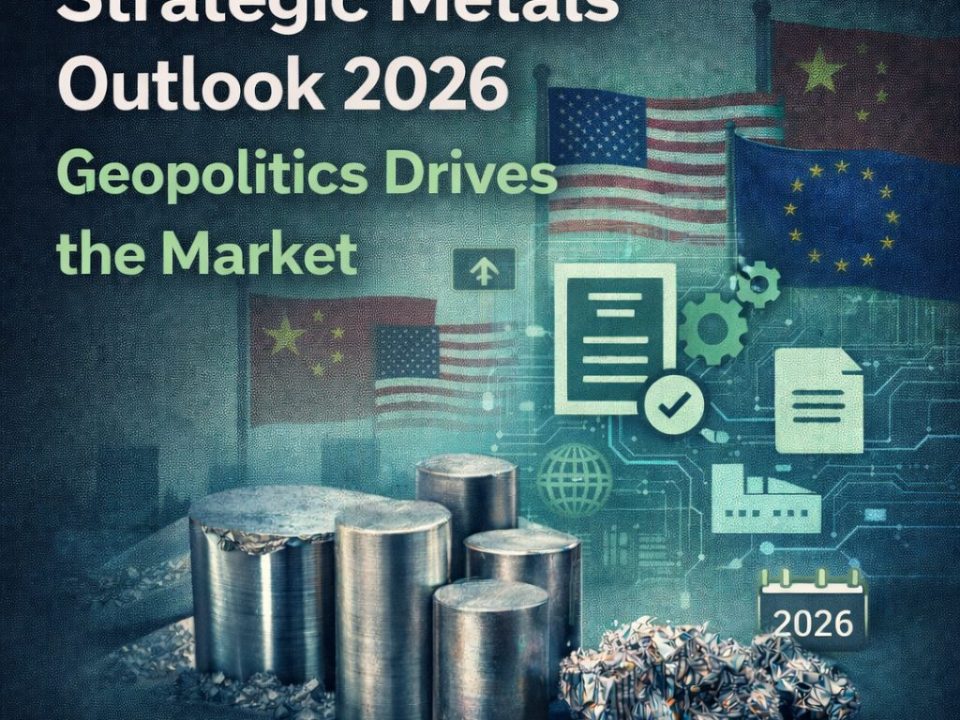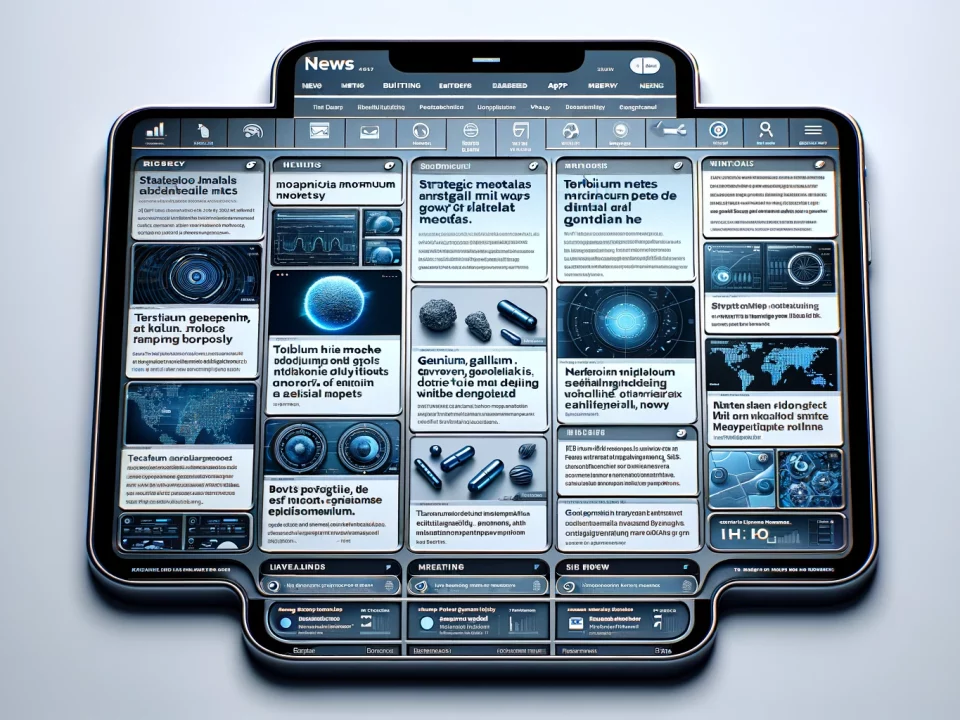
Weekly News Review December 2 – December 8 2024
December 8, 2024
Weekly News Review December 16 – December 22 2024
December 22, 2024The US has announced new tariffs on Chinese raw materials, and Malaysia wants to take tougher action against illegal mining.
Find out what else was important this week in our roundup.
UNITED STATES: ADDITIONAL TARIFFS ON CHINESE GOODS AND STRATEGIC METALS ANNOUNCED –
The United States will impose new tariffs on various Chinese materials and raw goods. According to a statement from US Trade Representative Katherine Tai, tariffs on solar wafers and polysilicon—key precursors for the production of solar cells—will be raised to 50 percent. A 25 percent tariff will also apply to various tungsten products starting January 1.
The justification for these measures cites the heavy reliance on tungsten imports from China, which jeopardizes national security and undermines efforts to establish domestic production capacity. According to the US Geological Survey, there has been no tungsten mining in the United States since 2015. The statement further elaborates that the new tariffs are expected to create incentives for developing domestic production capabilities.
Tungsten is used in tool manufacturing and is important to the defense industry.
MINE TO MAGNET: BRAZIL MAKES PROGRESS –
Brazil is emerging as a promising new player in the rare earth industry, as the South American country boasts immense but largely untapped reserves (of these critical resources. The state’s supply chains are now progressing further. Located in the southeastern state of Minas Gerais is the Araxá rare earth and niobium deposit, recently acquired by Australian miner St George. The company has announced that these resources could soon be processed domestically in Brazil. To this end, St George has signed a memorandum of understanding with Lab Fab, Latin America’s first producer of permanent magnets made from rare earths. Lab Fab is owned by the regional SENAI department of Minas Gerais, an organization that trains mining and chemical engineering professionals.
Lab Fab is expected to begin production in 2024, with plans to double its initial annual capacity of 100 tonnes of permanent magnets within the first three years. The necessary raw materials will come from Araxá, and additional Brazilian deposits, as the partnership with St George, follows earlier collaborations with other mining companies.
UNITED STATES: DEPT. OF ENERGY TO INVEST IN STRATEGIC METALS SUPPLY CHAIN –
The US Department of Energy (DOE) announced Tuesday that it will award up to $17 million to 14 projects across the domestic critical minerals and materials supply chains. The investment will help validate small-scale technologies and processes for commercial readiness and adoption, enhancing domestic production, recovery, and efficiency of critical minerals and materials.
The selected projects are spread across the DOE’s Critical Minerals and Materials strategic pillars: diversify and expand supply, develop alternatives, improve materials and manufacturing efficiency, and build the circular economy. The list includes recovering critical minerals from e-waste, testing rare earth-free magnets, finding alternatives to battery-grade graphite in lithium-ion batteries, and reducing iridium and platinum contents in membranes for electrolysis.
Coordinated through DOE’s Critical Materials Collaborative, the funding “will keep America’s growing manufacturing industry competitive while delivering economic benefits to communities nationwide,” US Secretary of Energy Jennifer M. Granholm said in a statement.
MALAYSIA CRACKS DOWN ON ILLEGAL RARE EARTH MINING:
Malaysia is stricter against illicit rare earth mining and cross-border smuggling. According to the news portal Free Malaysia Today, three separate raids this week resulted in 55 arrests and the seizing of over five tons of illegally mined and processed rare earths. At these operations, the officials said the material was repackaged into sacks and mislabeled as clay and fertilizers to mislead authorities before being shipped monthly to nearby ports for export.
This exploited a loophole that Natural Resources, Environment, and Climate Change Minister Nik Nazmi Nik Ahmad also highlighted recently: According to the minister, customs and law enforcement authorities would be unable to curb illegal mining and smuggling because they could not identify different substances.
However, Ahmad emphasized that the Malaysian government is taking the necessary steps to train the responsible agencies to curb smuggling. Earlier government findings also highlighted the need to address the fact that 16,000 tons of rare earths were illegally mined and exported in 2023.
In addition to training authorities, Ahmad highlighted the recently announced plans for two new rare earth processing plants (we reported). These plants would run on locally sourced feedstock, diminishing illegal opportunities.
The only operational refinery in Malaysia is the Lynas plant in Pahang. It is the largest rare earth refinery outside China and processes feedstock imported from Australia.
These measures align with Malaysia’s broader strategy to derive more significant economic benefits from mineral resources. Since 2023, the government has implemented export bans on unprocessed raw materials to encourage local value-adding industries and attract foreign investment.
CHINA; RARE EARTH EXPORTS DECLINE IN NOVEMBER –
China’s rare earth exports fell by seven percent in November compared to the previous month. However, with 4,416 tons, the figure surpassed the previous year’s level by nearly five percent, according to data from the Chinese customs authority. Overall, the country’s foreign trade performed worse than expected. According to Reuters, exports grew slower, while imports even declined.
The country faces an additional challenge with the trade policies anticipated by US President-elect Donald Trump, who plans to take a tougher stance on China. Relations between the two countries have been strained for years, as evidenced by the US efforts to block China’s access to cutting-edge computer chips. In response to recent measures by Washington, Beijing announced a ban on the export of certain raw materials, including those used in chip manufacturing, just last week.
SWEDEN: MINING APPLICATION GOES AHEAD –
Leading Edge Materials has applied for a 25-year mining concession for its Norra Kärr rare earth project. The project has faced long-standing opposition from local communities due to its proximity to a lake vital for the region’s water supply. The project was redesigned in response to these concerns, separating mining operations from chemical processing activities to mitigate environmental risks.
Earlier this summer, Leading Edge sought recognition of the project as a strategic initiative under the EU’s Critical Raw Materials Act. Such recognition could streamline the approval process. Nevertheless, securing the mining concession is just one step—additional requirements, including comprehensive environmental impact assessments, must still be fulfilled.
Norra Kärr is a eudialyte deposit known for its high concentration of heavy rare earth elements. However, eudialyte’s relatively low raw material concentration makes extraction particularly challenging and the focus of ongoing research.






